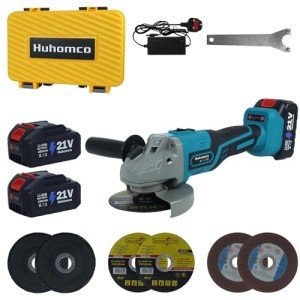Choosing Power Tools For Sale
Whether you're an experienced pro or just beginning your journey choosing the appropriate power tool for your work is essential. Look into a warranty policy that is fair and compatible with battery.
Mike Karch, president of Nue's Hardware and Tools in Menomonee Falls, Wisconsin, specializes in Dewalt and other professional-grade power tools. He has noticed that the focus on a brand can help him draw in contractors.
Brand
Brands play a major influence on the cost of power tools as well as the features they offer. Power tools that are specifically designed for professionals could cost up to three times more than DIY models. They also come with a warranty of one year. The top brands are focused on a specific niche within the market (metalworkers appreciate Milwaukee; carpenters like DeWalt); others offer a wide range of tools for homeowners, like Ryobi and Black & Decker; and others power tool companies specialize in commercial or industrial applications, such as Metabo. The interface of battery-powered power tools is sometimes not compatible across different manufacturers (even within the same product line) and can result in vendor lock-in, but there are adapters for aftermarket that allow you to use a variety of brands' batteries with their tools.
Power
Power tools are hand-held, mechanized devices powered by an internal combustion engine or an electric motor. They are used to reduce the amount of manual work required and automate manual operations. They are used for renovation, construction and housework, as well as gardening as well as engineering projects such as building, wiring, metal fabrication and electrical engineering. They can be used to increase productivity and improve the quality of products.
There are many kinds of power tools that are available each with their own unique characteristics and specifications. When deciding on the right tool, you should consider the kind of project you will be using it for. For example an electric power tool that is cordless is perfect for working in tight spaces without having to worry about falling over extension cords. It is also important to consider the dimensions of the tool, as some are bigger than others. You should also choose the tool that is easy to use and comfortable to hold.
It is crucial to remember that you should have the right safety equipment when using a power tool. This includes eye and hearing protection mask as well as gloves. Some power tools also require dust collection systems. They may have built-in ports that connect to the hose of a shop vacuum or may be compatible with external dust collection systems.
When power tool deals powertoolsonline.uk are choosing a battery powered power tool, choose a brand that is compatible with other batteries made by the same manufacturer. It is typical for battery-powered power tools to have different interfaces which can cause problems when using them in conjunction. Additionally, adapters from the aftermarket are designed to allow users to use different power tool brands battery, however they can impact the batteries' safety and monitoring systems.
Size

Power tools are available in a range of models, from lightweight tools that are designed for DIY, to professional-grade tools capable dealing with the demands of an industrial site. The weight and dimensions of an electric tool are vital aspects for both amateur and professional users, who must be able to move and operate the equipment without injury or strain. The size of a power tool also impacts its capacity to be stored and transported. Some power tools have extended warranties or service contracts which can be attractive to buyers.
DeWalt is the most-seller brand in the Total Power Tools Category, was the most popular brand with the highest percentage of units at 17 percent. The share grew year-over-year. Ryobi and Craftsman have both demonstrated a strong consideration rate, even though their unit share dropped significantly.
The majority of sales are made in big-box stores like Lowe's and Home Depot. Online purchases grew more quickly than in-store purchases, which offset the slight increase in purchases made on the internet. The online average price is lower than in-store purchases, but remains close to the industry average.
Warranty
A good power tool warranty can give you peace of mind. Most manufacturers offer a guarantee of some kind, but only a handful are completely committed to their customers. Ridgid, for instance goes above and beyond the industry standard with a Lifetime Service Agreement. This means the original owner of any Ridgid product will not be charged for repairs or a replacement, no matter the time it occurs. This is a huge benefit for smaller contractors who rely on their tools to remain productive.
The warranty period for a power-tool is also important. High-end tools usually come with longer warranties, whereas lower-end tools might have shorter warranties. However, even mid-range tools can last a long time when used regularly and with proper maintenance.
When you are choosing the right power tool, look for one with a warranty that is appropriate for the type of work you do. If you're a homeowner for example, you might want a shorter warranty than when you were a contractor. The warranty should be easy to understand and should include an address that can be contacted quickly if there are any issues.
Milwaukee For instance, Milwaukee provides a five-year limited warranty that covers defects in the materials and workmanship. However, it does not cover normal wear and tear and alterations, misuse or neglect, as well as the lack of maintenance. Its warranty also doesn't apply to battery packs, chargers, or bits and blades. The helpful staff of the company is available to assist customers understand the scope of their warranty based on the intended use. They can also guide customers through the process of getting a repair or replacement. Typically, receipts aren't needed to make warranty claims.
